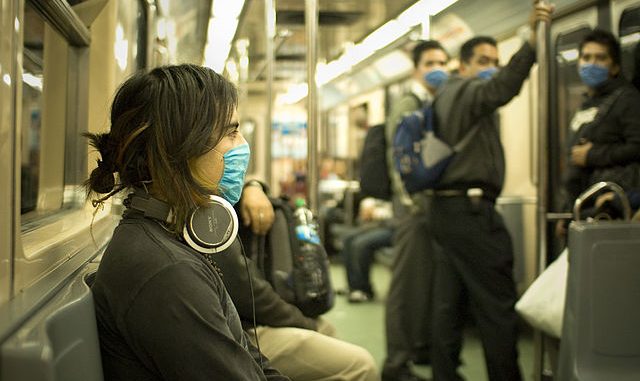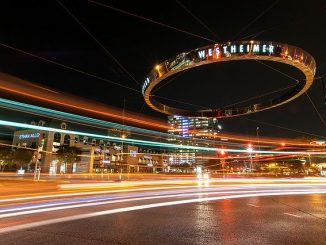
At the start of this year, I said to some friends of mine that I was hoping that this new decade of the 21st century would be much like the Roaring Twenties of one hundred years ago – minus Prohibition of course. Now, I’ve realized that I should have left out something else that was undesirable from that decade of a century ago, namely the Spanish Flu pandemic.
This century’s version of the Roaring Twenties pandemic, as we all now know, started off in the hinterlands of China. The 2019 Novel CoronaVirus, or COVID-19 as it has been dubbed, is thought by many to have originated in a live animal market in the city of Wuhan China, albeit a few have suggested that the virus may have gotten loose from a Chinese biological warfare lab. No matter what the origin, the disease has proven to be devil to contain, and this little bugger is quite eager to jump from one human host to another. Even worse, the worldwide mortality rate from this disease, as tracked by this site at John Hopkins University, has been hovering at around 3-4 percent of known recorded cases, with most of the victims being elderly or those who already had health problems. This is one reason why the Coronavirus should not necessarily be thought of as just another round of the flu, because although the flu occurs every winter and affects millions, the annual mortality rate from the flu is more along the lines of 0.1 percent.
Given the circumstances, political authorities have resorted to restricting travel and movement, while ordinary everyday people have started practicing self isolation, been told to work from home, been nagging each other to wash their hands and keep things clean, and in general have been using a raft of efforts to bring the spread of the Coronavirus under control. Talk of practicing social distancing and flattening the curve have suddenly become all the rage. Although Texas Governor Greg Abbott has so far refrained from drastic measures to curtail the disease – given that there have been 128 cases recorded in Texas so far as of this writing – the local political elite in Houston and Harris County haven’t been so gun shy. City of Houston Mayor Sylvester Turner announced a meeting to call for a disaster declaration, while Harris County Judge Lina Hidalgo has gone so far as to impose a 15 day closure for bars and restaurants (albeit, take out and deliveries are still permitted). The Houston Livestock Show and Rodeo was closed for the year, school districts are shutting down, and local sporting events have been cancelled en masse. The cruise ship lines, airlines, and aircraft manufacturers have all been pummeled by the Coronavirus outbreak, as has the oil and gas industry.
And yet, there’s still the transit industry…
And yet, with all this economic damage that has been inflicted upon millions in the effort to stop the Coronavirus, there’s one sector of the transportation industry that still somehow remains a sacred cow: the local transit industry. Transit agencies have continued to operate, even when the very idea of mass transit is a patently stupid thing to do in times of a pandemic. Transit is sometimes referred to as mass transit or public transportation. Well, in order for mass transit or public transportation to live up to their names, you need to put the masses into mass transit. And yep, you need to put the public into public transportation. Even when the CDC is recommending cancelling public gatherings of 10 people or more in high risk populations, the local political elite still insist on letting METRO operate, with these lame puff pieces being offered on what METRO is doing to deal with the Coronavirus.
Nope. Sorry folks, but that isn’t enough. The Houston Chronicle‘s Dug Begley wrote a column today that METRO’s patrons are having more sense than METRO is, in that the agency’s ridership numbers have dropped like a rock in the wake of the virus. Despite protests to the contrary, METRO is not nearly as vital as many have proclaimed over the years, but transit systems are disease vectors and should be treated accordingly. METRO should stop operation for the next 15 – 30 days as part of the effort to halt the spread of the Coronavirus, and should only be allowed to start back up at the same time it is deemed safe for restaurants and bars to reopen.
There’s no need to worry. Unlike the airlines, the transit industry (and METRO) gets most of its money from taxes, and will still be around once this episode is over and we’ve beaten the Coronavirus. Yet all the same, METRO should not be operating for the near term until this virus scare is over.


